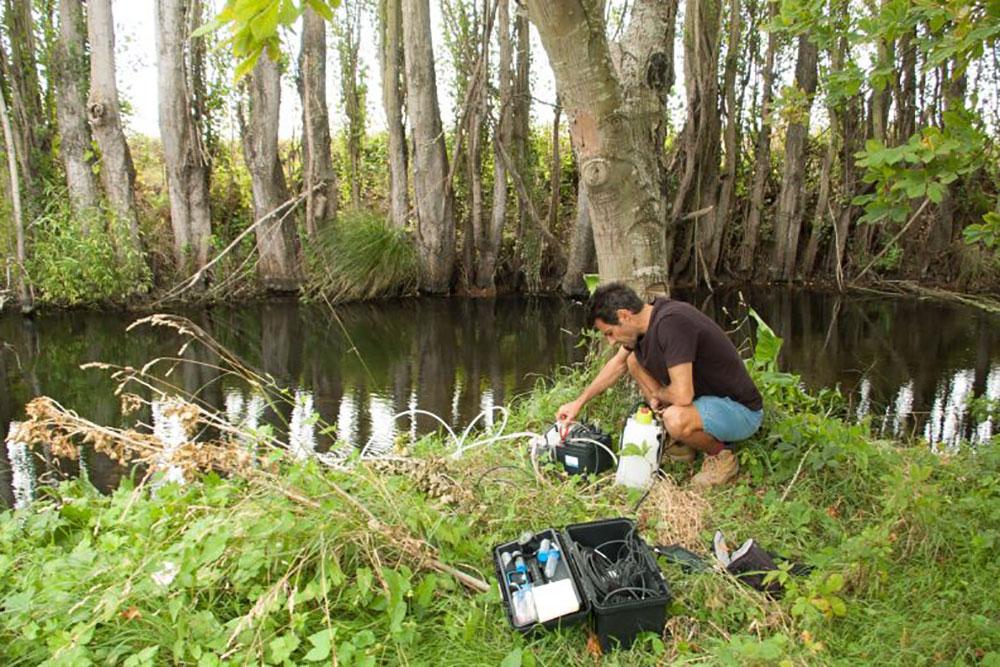Master of Water Resource Management
- Degree Structure - Start In
- Not open to new enrolments

UC's Master of Water Resource Management (MWaterRM) prepares you for a professional career in water resource management. Learn more about studying an MWaterRM through our Te Kaupeka Pūtaiao | Faculty of Science.
240
The MWaterRM is not open to enrolments. See UC’s new Master of Water Science and Management or the Master of Science majoring in Water Science and Management.
Managing the world's precious water resources requires professionals to have multidisciplinary knowledge and an integrated approach, involving ecological, scientific, political, hydrological, and planning skills.
The Master of Water Resource Management will prepare graduates for a professional career in water resource management. Students learn how to develop innovative and effective methods for the sustainable management of this critical resource in Aotearoa New Zealand and internationally.
Postgraduate students benefit from the teaching and research conducted by the Waterways Centre for Freshwater Management, a joint partnership between UC and Te Whare Wānaka o Aoraki | Lincoln University.

The first year (Part I) of the Master of Water Resource Management comprises three compulsory courses, and other relevant courses from the Schedule.
In the second year (Part II) you will undertake a research thesis with external stakeholder support and interest to provide you with experience in the sector.
For full requirements, see the Regulations for the Master of Water Resource Management.
Compulsory courses:
Elective courses – choose at least 30 points:
Additional recommended course options (45 points) will be made available by the Waterways Centre for Freshwater Management.
Part 1
2024 tuition fee estimate: $9,157 per 120 points
2025 tuition fee estimate: $9,706 per 120 points
Part 2
2024 tuition fee estimate: $8,632 per 120 points
2025 tuition fee estimate: $9,150 per 120 points
2024 tuition fee estimate: $84,400 (240 points) ($42,200 per 120 points)
2025 tuition fee estimate: $87,600 (240 points) ($43,800 per 120 points)
2026 tuition fee estimate: $90,600 (240 points) ($45,300 per 120 points)
2024 SSL: $9.17 per point ($1,100.40 for 120 points)
2025 SSL: $9.72 per point ($1,166.40 for 120 points)
Postgraduate study can bring many career benefits eg, specialist skills and enhanced knowledge, entry into specific occupations, higher starting salary/progression rates, research capability/achievement, and evidence of high academic attainment/self-discipline.
By clicking "Accept All Cookies", you agree to the storing of cookies on your device to enhance site navigation, analyse site usage, and assist in our marketing efforts.
0800 827 748 (within NZ)
+64 3 369 3999
Ext: 92111 (from a campus landline)
Direct dial: 0800 823 637
University of Canterbury | A Fair Trade University
